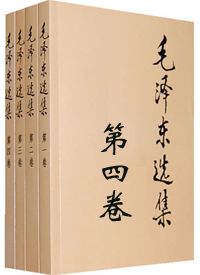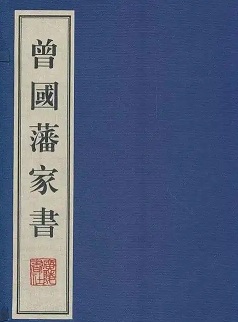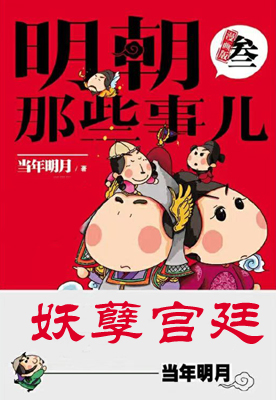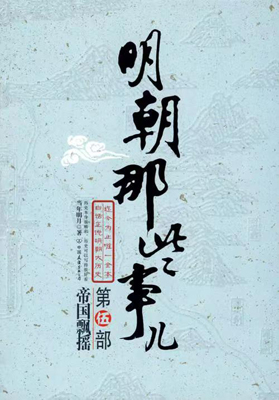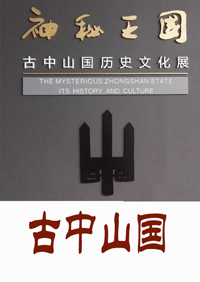These Parisians came, one from Toulouse, another from Limoges, the third from Cahors, and the fourth from Montauban; but they were students; and when one says student, one says Parisian: to study in Paris is to be born in Paris.
These young men were insignificant; every one has seen such faces; four specimens of humanity taken at random; neither good nor bad, neither wise nor ignorant, neither geniuses nor fools; handsome, with that charming April which is called twenty years. They were four Oscars; for, at that epoch, Arthurs did not yet exist. Burn for him the perfumes of Araby! exclaimed romance. Oscar advances. Oscar, I shall behold him! People had just emerged from Ossian; elegance was Scandinavian and Caledonian; the pure English style was only to prevail later, and the first of the Arthurs, Wellington, had but just won the battle of Waterloo.
These Oscars bore the names, one of Felix Tholomyes, of Toulouse; the second, Listolier, of Cahors; the next, Fameuil, of Limoges; the last, Blachevelle, of Montauban. Naturally, each of them had his mistress. Blachevelle loved Favourite, so named because she had been in England; Listolier adored Dahlia, who had taken for her nickname the name of a flower; Fameuil idolized Zephine, an abridgment of Josephine; Tholomyes had Fantine, called the Blonde, because of her beautiful, sunny hair.
Favourite, Dahlia, Zephine, and Fantine were four ravishing young women, perfumed and radiant, still a little like working-women, and not yet entirely divorced from their needles; somewhat disturbed by intrigues, but still retaining on their faces something of the serenity of toil, and in their souls that flower of honesty which survives the first fall in woman. One of the four was called the young, because she was the youngest of them, and one was called the old; the old one was twenty-three. Not to conceal anything, the three first were more experienced, more heedless, and more emancipated into the tumult of life than Fantine the Blonde, who was still in her first illusions.
Dahlia, Zephine, and especially Favourite, could not have said as much. There had already been more than one episode in their romance, though hardly begun; and the lover who had borne the name of Adolph in the first chapter had turned out to be Alphonse in the second, and Gustave in the third. Poverty and coquetry are two fatal counsellors; one scolds and the other flatters, and the beautiful daughters of the people have both of them whispering in their ear, each on its own side. These badly guarded souls listen. Hence the falls which they accomplish, and the stones which are thrown at them. They are overwhelmed with splendor of all that is immaculate and inaccessible. Alas! what if the Jungfrau were hungry?
Favourite having been in England, was admired by Dahlia and Zephine. She had had an establishment of her own very early in life. Her father was an old unmarried professor of mathematics, a brutal man and a braggart, who went out to give lessons in spite of his age. This professor, when he was a young man, had one day seen a chambermaid's gown catch on a fender; he had fallen in love in consequence of this accident. The result had been Favourite. She met her father from time to time, and he bowed to her. One morning an old woman with the air of a devotee, had entered her apartments, and had said to her, "You do not know me, Mamemoiselle?" "No." "I am your mother." Then the old woman opened the sideboard, and ate and drank, had a mattress which she owned brought in, and installed herself. This cross and pious old mother never spoke to Favourite, remained hours without uttering a word, breakfasted, dined, and supped for four, and went down to the porter's quarters for company, where she spoke ill of her daughter.
It was having rosy nails that were too pretty which had drawn Dahlia to Listolier, to others perhaps, to idleness. How could she make such nails work? She who wishes to remain virtuous must not have pity on her hands. As for Zephine, she had conquered Fameuil by her roguish and caressing little way of saying "Yes, sir."
The young men were comrades; the young girls were friends. Such loves are always accompanied by such friendships.
Goodness and philosophy are two distinct things; the proof of this is that, after making all due allowances for these little irregular households, Favourite, Zephine, and Dahlia were philosophical young women, while Fantine was a good girl.
Good! some one will exclaim; and Tholomyes? Solomon would reply that love forms a part of wisdom. We will confine ourselves to saying that the love of Fantine was a first love, a sole love, a faithful love.
She alone, of all the four, was not called "thou" by a single one of them.
Fantine was one of those beings who blossom, so to speak, from the dregs of the people. Though she had emerged from the most unfathomable depths of social shadow, she bore on her brow the sign of the anonymous and the unknown. She was born at M. sur M. Of what parents? Who can say? She had never known father or mother. She was called Fantine. Why Fantine? She had never borne any other name. At the epoch of her birth the Directory still existed. She had no family name; she had no family; no baptismal name; the Church no longer existed. She bore the name which pleased the first random passer-by, who had encountered her, when a very small child, running bare-legged in the street. She received the name as she received the water from the clouds upon her brow when it rained. She was called little Fantine. No one knew more than that. This human creature had entered life in just this way. At the age of ten, Fantine quitted the town and went to service with some farmers in the neighborhood. At fifteen she came to Paris "to seek her fortune." Fantine was beautiful, and remained pure as long as she could. She was a lovely blonde, with fine teeth. She had gold and pearls for her dowry; but her gold was on her head, and her pearls were in her mouth.
She worked for her living; then, still for the sake of her living,-- for the heart, also, has its hunger,--she loved.
She loved Tholomyes.
An amour for him; passion for her. The streets of the Latin quarter, filled with throngs of students and grisettes, saw the beginning of their dream. Fantine had long evaded Tholomyes in the mazes of the hill of the Pantheon, where so many adventurers twine and untwine, but in such a way as constantly to encounter him again. There is a way of avoiding which resembles seeking. In short, the eclogue took place.
Blachevelle, Listolier, and Fameuil formed a sort of group of which Tholomyes was the head. It was he who possessed the wit.
Tholomyes was the antique old student; he was rich; he had an income of four thousand francs; four thousand francs! a splendid scandal on Mount Sainte-Genevieve. Tholomyes was a fast man of thirty, and badly preserved. He was wrinkled and toothless, and he had the beginning of a bald spot, of which he himself said with sadness, the skull at thirty, the knee at forty. His digestion was mediocre, and he had been attacked by a watering in one eye. But in proportion as his youth disappeared, gayety was kindled; he replaced his teeth with buffooneries, his hair with mirth, his health with irony, his weeping eye laughed incessantly. He was dilapidated but still in flower. His youth, which was packing up for departure long before its time, beat a retreat in good order, bursting with laughter, and no one saw anything but fire. He had had a piece rejected at the Vaudeville. He made a few verses now and then. In addition to this he doubted everything to the last degree, which is a vast force in the eyes of the weak. Being thus ironical and bald, he was the leader. Iron is an English word. Is it possible that irony is derived from it?
One day Tholomyes took the three others aside, with the gesture of an oracle, and said to them:--
"Fantine, Dahlia, Zephine, and Favourite have been teasing us for nearly a year to give them a surprise. We have promised them solemnly that we would. They are forever talking about it to us, to me in particular, just as the old women in Naples cry to Saint Januarius, `Faccia gialluta, fa o miracolo, Yellow face, perform thy miracle,' so our beauties say to me incessantly, `Tholomyes, when will you bring forth your surprise?' At the same time our parents keep writing to us. Pressure on both sides. The moment has arrived, it seems to me; let us discuss the question."
Thereupon, Tholomyes lowered his voice and articulated something so mirthful, that a vast and enthusiastic grin broke out upon the four mouths simultaneously, and Blachevelle exclaimed, "That is an idea."
A smoky tap-room presented itself; they entered, and the remainder of their confidential colloquy was lost in shadow.
The result of these shades was a dazzling pleasure party which took place on the following Sunday, the four young men inviting the four young girls.
上述的那些巴黎青年中,有一个是图卢兹人,一个是利摩日人,第三个是卡奥尔人,第四个是蒙托邦人,不过他们都是学生,凡是学生,都是巴黎人,在巴黎求学,便算生在巴黎。
他们都是一些无足称道的青年,谁都见过这一类的人,四种庸俗人的标本,既不善,也不恶,既无学问,又非无知,既非天才,亦非笨伯,年方二十,美如妩媚的阳春。这是四个毫不出奇的奥斯卡尔①,因为在那时代,阿瑟②还没有出世。当时的歌谣说:“为了他,点上龙涎香,奥斯卡尔走上前来,奥斯卡尔,我要去看他!”大家已放下了《欧辛集》③。姿态的俊美崇尚的是斯堪的纳维亚式和苏格兰式。纯粹英国式要到以后才风行,并且阿瑟派的头号人物威灵顿得逞于滑铁卢战役还没有多少时候。
①奥斯卡尔(Oscar),瑞典和挪威国王,一七九九年生于巴黎。
②阿瑟(Arthur),美国第二十一届总统,生于一八三○年。
③《欧辛集》(Ossian),一部古诗集的名称,苏格兰文人麦克弗森(Macpherson)的英译本发表于一七六○年,一说该诗集系麦克弗森仿古的创作,曾传诵一时。
那些奥斯卡尔中间有一个叫斐利克斯·多罗米埃,图卢兹人;一个叫李士多里,卡奥尔人;还有一个叫法梅依,利摩日人;最后一个是勃拉什维尔,蒙托邦人。自然每个人都有他的情妇。勃拉什维尔爱宠儿,她取了那样一个名字,是因为她到英国去过一趟;李士多里锺情于用花名作别名的大丽;法梅依奉瑟芬如天人,瑟芬是约瑟芬的简称;多罗米埃有芳汀,别号金发美人,因为她生得一头日光色的美发。
宠儿、大丽、瑟芬和芳汀是四个春风满面、香气袭人的美女,但仍带有一点女工的本色,因为她们并没有完全不理针线,虽然谈情说爱,她们脸上总还多少保存一点劳动人民的庄重气味,在她们的心里也还有一朵不因破瓜而消失的诚实之花。四个人里,有一个叫做小妹,因为她的年龄最轻,还有一个叫做大姐的。大姐有二十三岁。不瞒大家说,起头的三个人,都比金发美人芳汀有经验些,放得开些,在人生的尘嚣中阅历多些,芳汀却还正做她初次的情梦。
大丽,瑟芬,尤其是宠儿,都不可能有那种痴情。她们的情史,虽然刚开始,却已有过多次的波折,第一章里的情人叫阿多尔夫,第二章里的却变了阿尔封斯,到第三章又是古士达夫了。贫寒和爱俏是两种逼死人的动力,一个埋怨,一个逢迎。平民中的一般美貌姑娘都兼而有之,每一个都附在一边耳朵上细语不停。防范不严的心灵便俯首听命了。自己落井的原因在此,别人下石的原因也在此。而人们却总要拿那一切莹洁无瑕、高不可攀的贞操来对她们求全责备。唉!假使少妇不胜饥寒之苦呢?
宠儿到英国去过一趟,因此瑟芬和大丽都羡慕她。她很早就有个家。她的父亲是个性情粗暴、爱吹牛的老数学教师,从没正式结过婚,虽然上了年纪,却还靠替人补课度日。这位教师在年轻时,有一天,看见女仆的一件衣裳挂在炉遮上,便为了那件偶然的事,动了春心。结果,有了宠儿。她有时碰见父亲,她父亲总向她行礼。有一天早晨,一个离奇古怪的老婆子走到她家里来,对她说:“小姐,您不认识我吗?”“不认识。”“我是你的妈。”那老婆子随即打开了菜橱,吃喝以后,又把她一床褥子搬来,住下了。那位叽哩咕噜、笃信上帝的母亲从不和宠儿说话,几个钟头里能不说一个字,早餐、中餐、晚餐,她一个人吃的抵得上四个人、还要到门房里去串门子,说她女儿的坏话。
大丽委身于李士多里,也许还结识过旁人,她之所以游手好闲,是她那十只过分美丽的桃红指甲在作怪。怎能忍心让那样的指甲去做工呢?凡是愿意保全自己清白的人都不应怜惜自己的手。至于瑟芬,她之所以能征服法梅依,是因为她能用一种娇里带妖的神态对他说:“是呀,先生。”
那些青年是同学,那群姑娘是朋友。那种爱情总是有那种友谊陪衬着的。
自爱和自知是两回事。这儿有个证明,我们暂且把他们那种不正规的结合放下不谈,我们可以说宠儿、瑟芬和大丽是有自知之明的姑娘,芳汀却是自爱的姑娘。
我们可以说她自爱吗?那么,多罗米埃又怎么说呢?所罗门也许会回答说爱也是自爱之一道。我们只说芳汀的爱是初次的爱,专一的爱,真诚的爱。
她在那四人当中是唯一只许一个人对她称“你”的。
芳汀是那样一个从平民的底层(不妨这样说)孕育出来的孩子。她虽然是从黑暗社会的那种不可测的深渊中生出来的,她的风度却使人摸不着她的出处和身世。她生在滨海蒙特勒伊①。出自怎样的父母?谁知道?谁也没有见过她的父母。她叫芳汀。为什么叫芳汀呢?因为人家从来不知道她有旁的名字。她出世时,督政府②还存在。她没有姓,因为她没有家;她没有教名,因为当时教堂已不过问这些事了。她在极小时赤着脚在街上走,一个过路人这样叫了她,她就得了这个名字。她接受了这个名字,正如她在下雨时额头从天上接受了一点雨水一样。大家都叫她做小芳汀。除此以外,谁也不知道关于她的其他事。她便是这样来到人间的。十岁上,芳汀出城到附近的庄稼人家里去作工。十五岁上,她到巴黎来“碰运气”。芳汀生得美,她保持她的童贞直到最后一刻。她是一个牙齿洁白、头发浅黄的漂亮姑娘。她有黄金和珍珠做奁资,不过她的黄金在她的头上,珍珠在她的口中。
①滨海蒙特勒伊(MontreuilCsurCmer),法国北部加来海峡省的一县。
②督政府(Directoire),一七九五年,革命的国民公会解散,让位于代表新兴富豪阶级的督政府,一七九九年督政府解散,政权转入以波拿巴为首的执政府。
她为生活而工作,到后来,她爱上了人,这也还是为了生活,因为心也有它的饥饿。
她爱上了多罗米埃。
对他来说,这不过是逢场作戏,而对她,却是一片真情。充塞着青年学生和青年姑娘的拉丁区曾目击那场情梦的滋长。在先贤祠的高坡一带,见过多少悲欢离合的那些长街曲巷里,芳汀逃避多罗米埃何止一次,但是躲避他却正是为了遇见他。世间有那么一种躲避,恰好象是追求。简单地说,情史开场了。
勃拉什维尔、李士多里和法梅依彼此形影不离,并以多罗米埃为首领。他有办法。
多罗米埃是往日那种老资格的学生,他有钱,他有四千法郎的年息,四千法郎的年息,在圣热纳微埃夫山①上,可以为所欲为了。多罗米埃已有三十岁了,一向寻欢作乐,不爱惜身体。他脸上已经起了皱纹,牙齿也不齐全,头也秃了顶;他自己毫不在乎,他常说:“三十岁的头顶秃,四十岁的膝头僵。”他的消化力平常,有一只眼睛常淌泪。但是他的青春去得越远,他的兴致却越高。他把谐谑代替他的牙,欢乐代替他的发,讥讽代替他的健康,那只泪汪汪的眼睛也总是笑眯眯的。他已经疲劳过度,却仍旧勇气百倍。尽管年事不高,青春先萎,他却能且战且退,整军以还,笑声脆劲,在别人看来,火力还是很足的。他写过一篇戏剧,被滑稽剧院退了回来。他随时随地写一些不相干的诗。并且,他自命不凡,怀疑一切事物,在胆怯的人的眼里他成了一条好汉。因此,尽管秃头,爱讽刺,他倒做了领袖。Iron是一个作“铁”解释的英国字。难道作“讽刺”解释的ironie是从这英文字来的吗?
①指拉丁区,巴黎大学所在地区。
有一天,多罗米埃把那三个人拉到一边,指手画脚地向他们说:
“芳汀,大丽,瑟芬和宠儿要求我们送她们一件古怪玩意儿已快一年了。我们也曾大模大样地答应了她们。她们直到现在还常常对我们谈到这件事,尤其是对着我。正好象那不勒斯①的那些老太婆常对圣詹纳罗喊着说‘黄面皮,快显灵!’一样,我们的美人也经常向我们说:‘多罗米埃,你那怪玩意儿几时拿出来?’同时我们的父母又常有信给我们。两面夹攻。我认为时间已经到了。我们来商量一下。”
①那不勒斯(Naples),意大利西岸港口。圣詹纳罗(SaintJanvier)又译圣雅努亚里,是它的保护神。
说到此地,多罗米埃的声音放低了,并且鬼鬼祟祟地讲了些话,有趣到使那四张口同时发出一阵奔放、兴奋的笑声,勃拉什维尔还喊道:
“这真是妙不可言!”
他们走到一个烟雾腾腾的咖啡馆门前,钻了进去,他们会议的尾声便消失在黑暗中了。
这次密谈的结果带来了下星期日举行的那场别出心裁的郊游,四位青年邀请了那四位姑娘。



